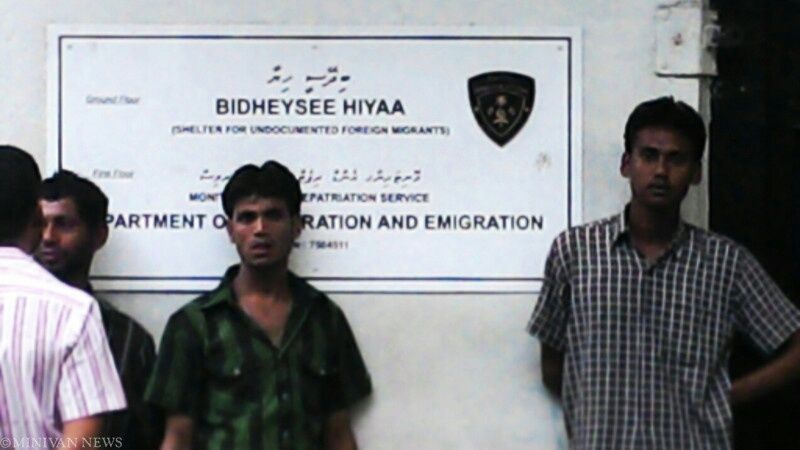5,000 ‘irregular’ migrant workers sent back
Some 5,000 migrant workers have been repatriated this year due to “irregularities” such as expired work visas and lack of valid travel documents.

29 Aug 2016, 09:00
Some 5,000 migrant workers have been repatriated this year due to “irregularities” such as expired work visas and lack of valid travel documents.
The immigration department said in a tweet that of the 5,000 workers, 230 have been deported.
Hassan Khaleel, the department’s spokesperson, told The Maldives Independent that the workers who were sent back to their countries had been under police custody at some point.
They were not illegal or undocumented workers but “irregular” workers, he noted.
Become a member
Get full access to our archive and personalise your experience.
Already a member?
Discussion
No comments yet. Be the first to share your thoughts!
No comments yet. Be the first to join the conversation!
Join the Conversation
Sign in to share your thoughts under an alias and take part in the discussion. Independent journalism thrives on open, respectful debate — your voice matters.




